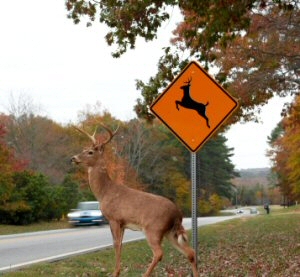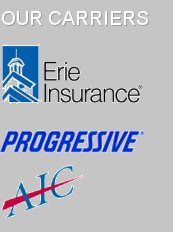 It's a brand new year and a time for resolutions and plans. Does your new year include wedding bells? If so, it's likely that all the checklists and plans are underway, and dreams of the wedding march and the honeymoon dance in your head. But does that checklist include the possible changes to your insurance portfolio as you join two lives and become a couple? Will you need different financial protection? What will managing two careers as a couple mean for you? How will merging two households affect you?
It's a brand new year and a time for resolutions and plans. Does your new year include wedding bells? If so, it's likely that all the checklists and plans are underway, and dreams of the wedding march and the honeymoon dance in your head. But does that checklist include the possible changes to your insurance portfolio as you join two lives and become a couple? Will you need different financial protection? What will managing two careers as a couple mean for you? How will merging two households affect you?
Do your future plans depend upon two incomes? If so, your lifestyle will reflect that. You will have expenses that you have not yet anticipated, and perhaps you have existing education loans or even medical bills to pay. Then there's retirement... yes, it seems so far away, but who knows what the future will bring? Will you buy a home? Will you start a family? In fact, one never knows what life holds in store, so it is important to make plans now to protect what you have and what you expect to have.
If the worst happens and tragedy strikes in the future, having started a life insurance policy now could ensure that your surviving spouse is protected. There are two types of life insurance policies: term which expires and permanent (whole life) which does not. Life insurance is a popular financial planning tool which is much more than just a way to pay ones final expenses; and the younger you are when you establish your policy, the less you will pay in premiums and the greater the financial benefit will be, no matter how you decide to use it. Check out Life Insurance details here on our website to find out all the options and prepare to be surprised.
You might already know whether you will rent or own your first home. If you intend to own a house, then your realtor or banker might already have spoken to you about homeowners insurance which will cover your investment if your home is damaged and will also protect you if someone else files a claim for injury or damage for which you are responsible. In fact, homeowners insurance might also cover your own belongings if they are damaged, destroyed or stolen. If you will be a condo owner, then you will find the terms of your insurance somewhat different; and if you will be renting your home, the terms will be still more different. You can find out the differences and all you need to know about Homeowners Insurance, Condo Insurance and Renters Insurance here on our website.
Just as you merge your households, you will likely own at least two vehicles, as a couple. The good news is as a married couple, you might expect to pay a somewhat lower auto insurance rate, and there might be other discounts that you need to know as well. If you both are already using the same insurance company and the same insurance agent, it could be easier to arrange for the best rates and the best coverage for your new lifestyle. If, however, you use separate companies and agents, then it is worthwhile to schedule a review of your policies to see which company offers you the best rates and terms before making any changes. If you need to brush up on your auto insurance knowledge before you meet with the insurance agent, you'll find all you need to know here on our website.
So while you might feel overwhelmed with all the details to be handled before you take that walk down the aisle, you can understand why reviewing your insurance needs is one item that should not be left off your list.
Best of luck for a long a happy life together!
In future posts, we will discuss other important things for newlyweds to consider and also take a look at the challenges that we face in other stages of life. So stay tuned...
 No matter where you drive – from rural roads to suburban streets and even highways around our cities – the threat of a collision with a deer is real.
No matter where you drive – from rural roads to suburban streets and even highways around our cities – the threat of a collision with a deer is real.
In fact, according to the Insurance Information Institute, over 1 .6 million deer-vehicle collisions occur each year. These accidents result in vehicle damage, injuries and even fatalities at a cost in the neighborhood of $4.6 billion.
Deer collision accidents are on the rise, partially because the deer are being displaced from their natural habitat by urban sprawl but also because the deer population is growing.
A Few Facts…
- Prime times to find deer near the roadside are around dawn and from dusk to late evening.
- Deer collisions are most likely to occur during deer breeding season – from October through early January.
- Deer are pack animals. So if you see one, be assured that others are usually close by.
Deer Season Driving Tips
- Know the likely deer-crossing zones – Whether or not a road is marked with a Deer Crossing Sign, be especially alert for deer when driving on roads or highways on the outskirts of town and in rural areas – especially where roads divide farm land from wooded land.
- Know when deer are on the move – Be especially careful between 5AM and 8AM and between 5PM and midnight.
- Always wear your seatbelt – Sixty percent of fatal animal crashes occurred when the driver was not wearing a seatbelt.
- Use your high beams – When driving at night, especially during peak hazard times, use your high-beam headlights when there is no on-coming traffic. This won’t necessarily deter the deer from entering the roadway, but it will increase visibility so that you can more easily spot the deer sooner.
- Brake firmly if you notice a deer near the road – Slow down and stop if necessary. Be careful not to swerve out of your lane either into on-coming traffic or off the shoulder and into a ditch.
- Don’t rely on devices – Items like deer whistles, deer fences and reflectors have not been proven effective at deterring deer crossing roadways.
- Keep your distance – If you do strike a deer, don’t approach it. An injured deer is frightened and can injure you as well as further injuring itself. If the deer is blocking the roadway, it poses a threat to other drivers; so call the authorities immediately.
- Contact your insurance agent – If you strike a deer and have damage to your vehicle or damage to some else’s property, notify your insurance representative as soon as possible and provide the necessary details.
With old man winter bearing down upon us, it’s a good idea to brush up on the common sense rules for safe winter driving and heed these car safety guidelines for dealing with winter road emergencies.
- Prepare your car for winter before wet, cold or icy weather strikes by performing a complete vehicle check-up. Your auto tech will tell you that winter conditions present the greatest challenge to your vehicle’s operating efficiency.
- Check your tires frequently for proper inflation. If your vehicle owner’s manual does not specify, then ask your automotive technician about the proper inflation level.
- Keep a Winter Driving Kit in your vehicle and stock it with: a bag of sand, salt or kitty litter; ice scraper; paper towels; shovel; snow brush; warning flares; window-washing fluid; a flash light; booster cables; a blanket; extra gloves; and a cellular phone. You’ll have the peace of mind that comes from knowing you’re prepared for an emergency.
- Move your vehicle into the open to let it warm up so that you avoid exhaust build-up in your garage.
- Make it a practice to keep your fuel tank at least half-full – both to prevent gas-line freeze and to ensure that you won’t likely run out of fuel in an emergency.
- Whenever possible, avoid driving in bad weather; but if you must drive, try to be well rested and wait until snow plows and sand trucks have cleared the roads.
- When driving on wet, snowy or icy roads, avoid using cruise control or overdrive. Both detract from your full control of the vehicle in possible slippery conditions.
- Use your seat belt and make sure that your seat and mirrors are properly adjusted for best visibility. Wear sunglasses to reduce glare.
- Don’t use your parking brake in cold or inclement weather, if at all possible.
- If you experience skidding on slippery roads, always take your foot off the gas pedal and steer in the direction you want to go to recover from the skid.
The key to safe winter driving is to plan ahead, know your vehicle and adapt to the weather and road conditions.
 Regardless of our swimming abilities, many of us beat the heat in our backyard swimming pool as summer temperatures soar. It seems that taking advantage of a residential swimming pool is more popular than ever before. In fact, well over 8 million U. S. households owni a pool, according to the Association of Pool and Spa Professionals.
Regardless of our swimming abilities, many of us beat the heat in our backyard swimming pool as summer temperatures soar. It seems that taking advantage of a residential swimming pool is more popular than ever before. In fact, well over 8 million U. S. households owni a pool, according to the Association of Pool and Spa Professionals. But all swimming pools – from the simplest inflatable wading pool to the most elaborate luxury in-ground variety – can present a danger, especially to children.
Swimming Pool Safety Tips
The following safety rules will prevent accidents and decrease your potential liability exposure:
- Empty wading pools completely after each use, and always store them upside-down to avoid collection of rain water.
- Install a fence at least 4 feet high around the entire pool area with a gate that latches and locks. Never leave furniture or other items close enough to the fence to allow children to climb over. Pool alarms and safety covers add extra protection.
- The powerful suction of a pool drain can trap a child under water. Cover your drain with a safety guard, tie up long hair before swimming, and teach children to stay away from drains and filters. In particular, teach them never to sit on a pool drain.
- Post emergency numbers and CPR instructions in the pool area. Store a first aid kit, a cordless water-resistant phone, reaching poles and ring buoys near the pool area to be used in case of emergency; and do not allow children to play with these items.
- Consider having older teens and adults take a course in basic first aid and CPR, and enroll your family’s non-swimmers in swimming lessons with a certified instructor. Anyone who is not a good swimmer should wear a U.S. Coast Guard approved life vest while in your pool.
- Adults should not swim alone, and children should never swim without an adult present and watching them constantly.
- Keep the pool area clear of glass items, electrical devices (radios, CD players, etc.), and obstacles that could cause a fall or other injury.
Insurance and Liability Issues
If you are planning to install a pool at your residence, it is important to consider the insurance implications as well as the safety issues. The Insurance Institute recommends the following:
- Installing a pool will also increase your insurance liability risk. So contact your insurance agent to be sure your homeowners policy provides enough additional liability coverage. If your pool will be costly, this may mean you will have to increase your coverage to protect your pool, should a storm or other disaster destroy or damage it.
- Contact your town or municipality since the definition of a pool which drives local building codes and safety standards will vary from town to town. You will want to have this information before you purchase the pool.









